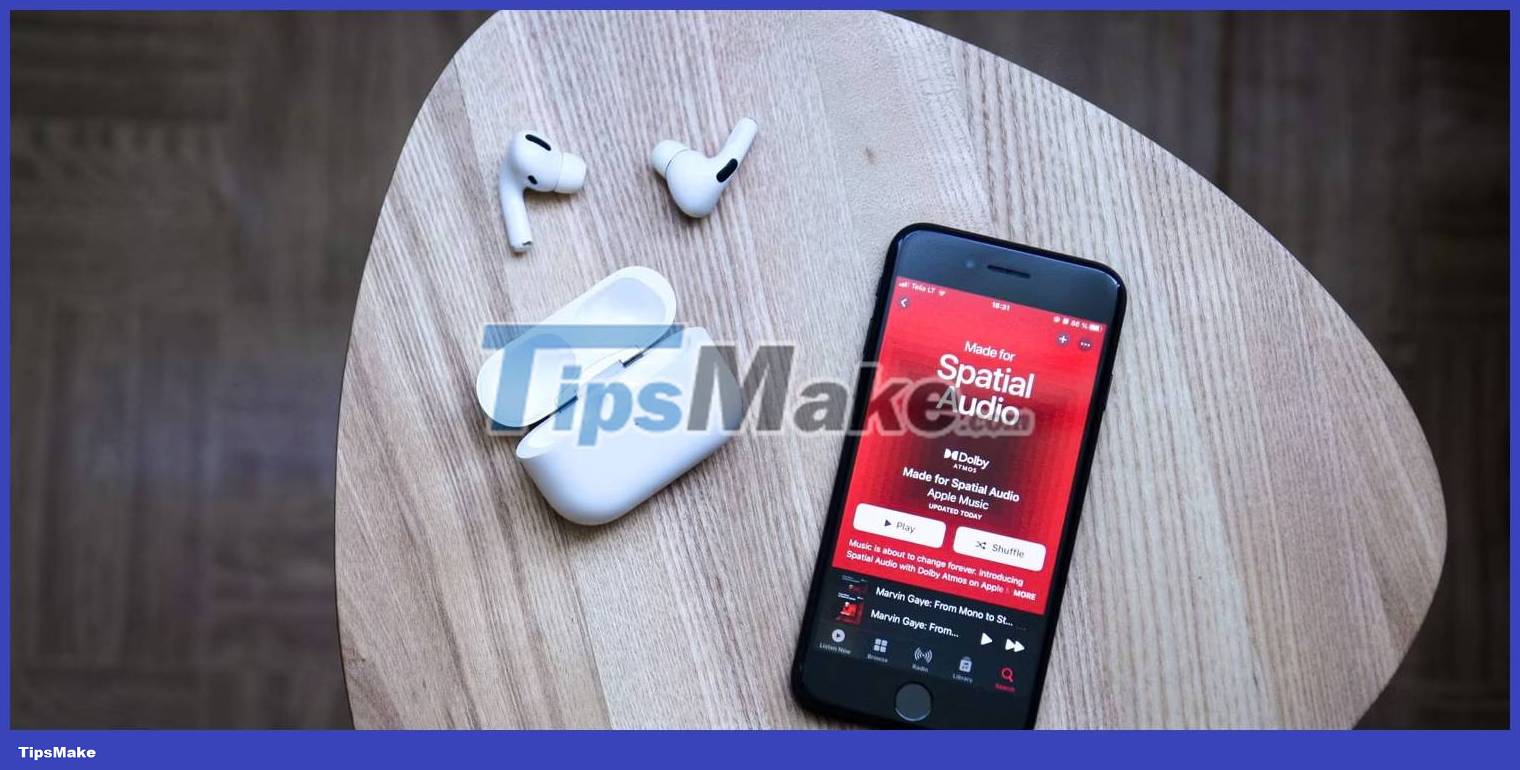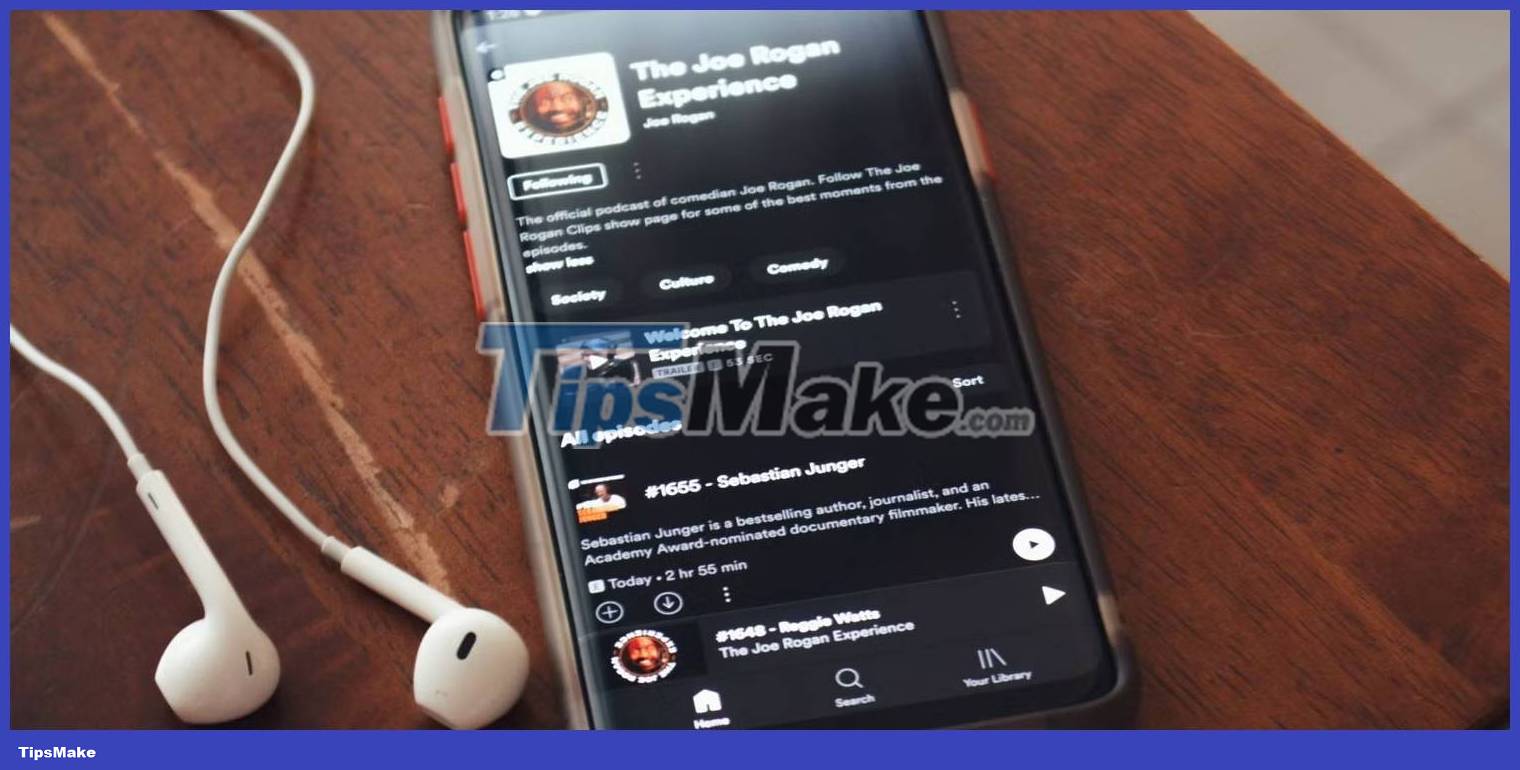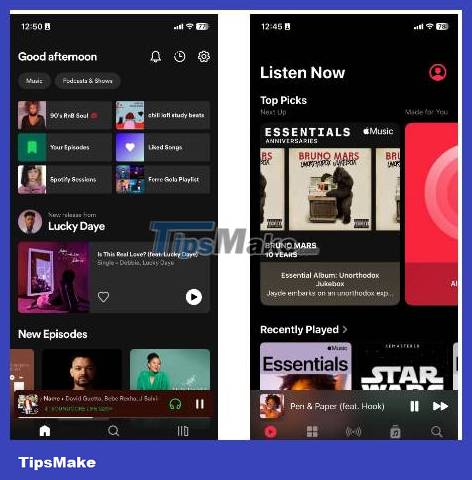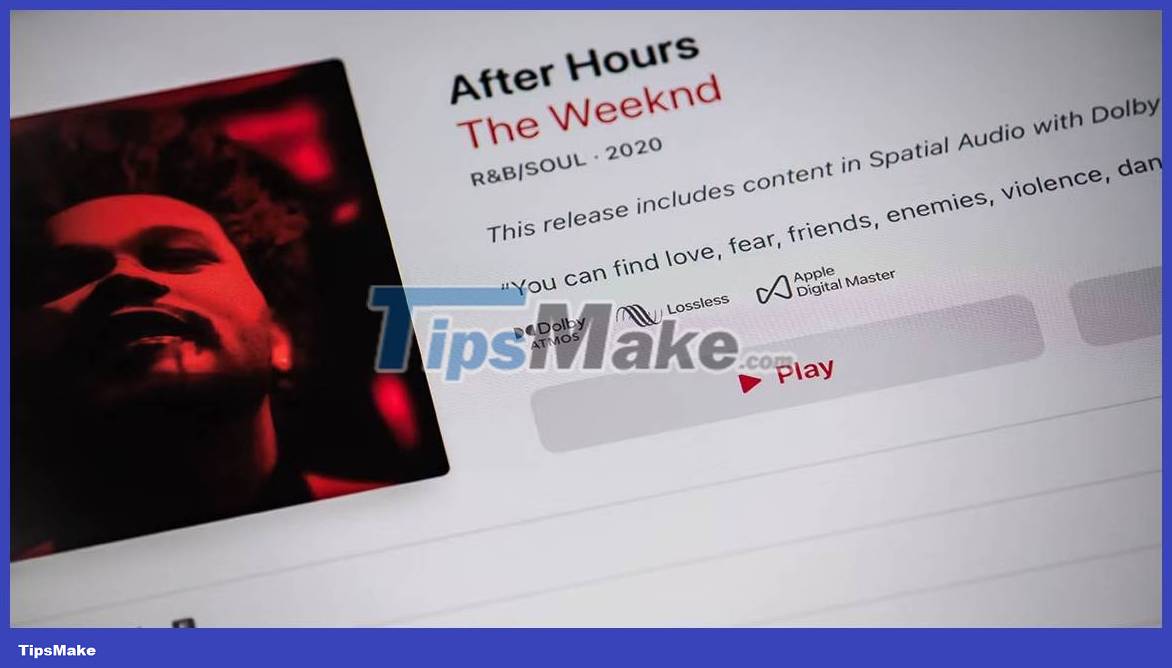Compare Spotify and Apple Music
Both Spotify and Apple Music offer music streaming services with lots of subscribers. While Apple has always had a strong foothold in the digital music market with products like the iPod and iTunes, it was Spotify that pioneered what we now call the 'open music model' (an economic and technological framework for the recording industry, based on research conducted at the Massachusetts Institute of Technology) to combat piracy.
Each app has such a huge following, a direct comparison between the two options seems pretty pointless. But, in general, most users will only buy a monthly subscription.
So, to answer the question of whether you should use Spotify or Apple Music, the article will focus on the most common criteria. There will be a clear winner in this music war.
Which streaming service has better sound quality?
One of the significant differences between Spotify and Apple Music is sound quality. Spotify's maximum audio streaming quality is 320kbps (defined as Very High ).
However, there are also lower quality options, including 24kbit/s ( Low ), 96kbit/s ( Normal ), and 160kbit/s ( High ), which you can enable if you want to save data. Despite being slow to adopt better audio quality, Spotify is still working on adding lossless audio support in a dedicated package called Spotify HiFi starting in 2021.

Apple Music beats Spotify in streaming quality as it supports up to 24-bit/192kHz, making the app one of the best music streaming services for audiophiles. The catch here is that you need a DAC and quality wired headphones or speakers to play Apple Music's high-resolution lossless audio on your iPhone, iPad, or Android device.
Other audio quality options on Apple Music include 16-bit/44.1kHz and 24-bit/48kHz. If you want to minimize the amount of data Apple Music uses, a 256kbps quality option is also available.
Apple Music also supports Spatial Audio, powered by Dolby Atmos surround sound technology, which helps create a cinema-like experience.
Which platform provides the best content?

Spotify has diverse content in addition to its music catalog of more than 82 million songs. You can also listen to podcasts and audiobooks. Unlike Spotify, Apple Music is primarily focused on music, with over 100 million songs on the platform. Its content library also includes live radio stations from around the world that you can tune in to at any time. With that said, if you want to listen to audiobooks or podcasts, you'll need to use Apple Books or Apple Podcasts respectively.
There are also exclusive Apple digital stations and radio shows, some hosted by famous artists and radio personalities. Apple Music also features videos and includes live performances not found anywhere else.
Music discovery and recommendations
You can discover new music on Spotify and Apple Music in a variety of ways. Starting with Spotify, the service offers 6 Daily Mix playlists based on your music preferences and top Artist, Genre, Mood and Decade Mix playlists .
There's also a Discover Weekly playlist and a dedicated Release Radar playlist with new music from artists you follow or love. The home tab contains custom recommendations, but you can find personalized music in Spotify's Made for You tab .
The service also has a Uniquely yours section under the Made For You tab with an AI-powered DJ feature, a Time Capsule playlist of your favorite songs, songs you're loving and songs you've been listening to. listen to the past.
Additionally, Spotify recommends music you can add to created playlists with just one tap based on the songs you've already added.

On the other hand, Apple Music offers personalized music in the Listen Now and Browse tabs. You'll find mixes, playlists, songs, albums and radio stations (endless combinations of personalized music). Apple Music personalized playlists include Favorites, Get Up!, Chill , and New Music mixes .
There's also a Stations for You section in the Listen Now tab with [Your Name]'s Station, Discovery Station, and several artist stations customized depending on your listening habits. These radio stations and playlists make discovering new music on Apple Music easy. However, you should listen to Apple Music's Discovery Station more because it's specifically meant for that purpose.
Both platforms have great personalization algorithms, but many consider Spotify's recommendation algorithm to be the best in the music streaming industry.
Possibility
Both services are available on iOS, macOS, iPadOS, Android, and Windows. You can also stream via the web and several other platforms. However, Spotify has an advantage over Apple Music because it is available on more platforms, from Linux to smart TV operating systems, gaming consoles, smart speakers, etc.
As an industry pioneer, you're more likely to find Spotify on a given platform than Apple Music, which is primarily exclusive to Apple devices. Spotify also offers a consistent streaming experience across platforms, unlike Apple Music.
What is the music streaming experience like?

The streaming experience offered by Spotify is much better than Apple Music. For example, on Spotify, you can use one device to control music playing on another device thanks to Spotify Connect.
Spotify Connect also lets you stream audio seamlessly from one device to another. For example, you can switch from playing audio on your phone's speaker to playing it on your TV as long as they're connected to the same network.
Apple Music cannot do this even when streaming music with iPhone and MacBook. Apple Music-only audio transfer support is available between other Apple devices and HomePod via AirPlay. With handoff support, you can use other Apple devices to control audio on HomePod.
But unlike Spotify, music playback will not be synchronized if you try to play music between different Apple devices at the same time. Each session will be separate but you will have a listening history.
Spotify has also invested in social features, making listening and sharing music with friends even better. For example, you can create collaborative playlists on Spotify and there's Blend, which lets you invite other users and create custom playlists that incorporate your unique musical tastes. Additionally, Spotify's app has a better user interface than Apple's across multiple platforms.
With that said, if you're not a fan of Apple's ecosystem, Spotify offers a better streaming experience and cross-platform support. Apple Music's service is better optimized for Apple devices but falls short of Spotify's intuitive streaming experience.
Price

One of the best free music streaming services, you can sign up and start using Spotify now with limited ad support. Spotify has three paid plans, including Standard ($10.99/month), Duo ($14.99/month), and Family ($16.99/month), which also unlocks Spotify Kids. There's also a special student discount at $5.99/month that includes access to Hulu (with ads).
On the other hand, Apple Music does not have a free plan. The cheapest plan, Apple Music Voice, has many limitations and starts at $4.99/month, followed by Standard ($10.99/month) and then Family ($16.99/month). Apple also offers a cheaper student plan at $5.99/month that comes with free Apple TV+.
You must reside at the same address for Spotify's Family and Duo plans. Conversely, you just need to set up the same region in iTunes to use Apple Music's Family plan.